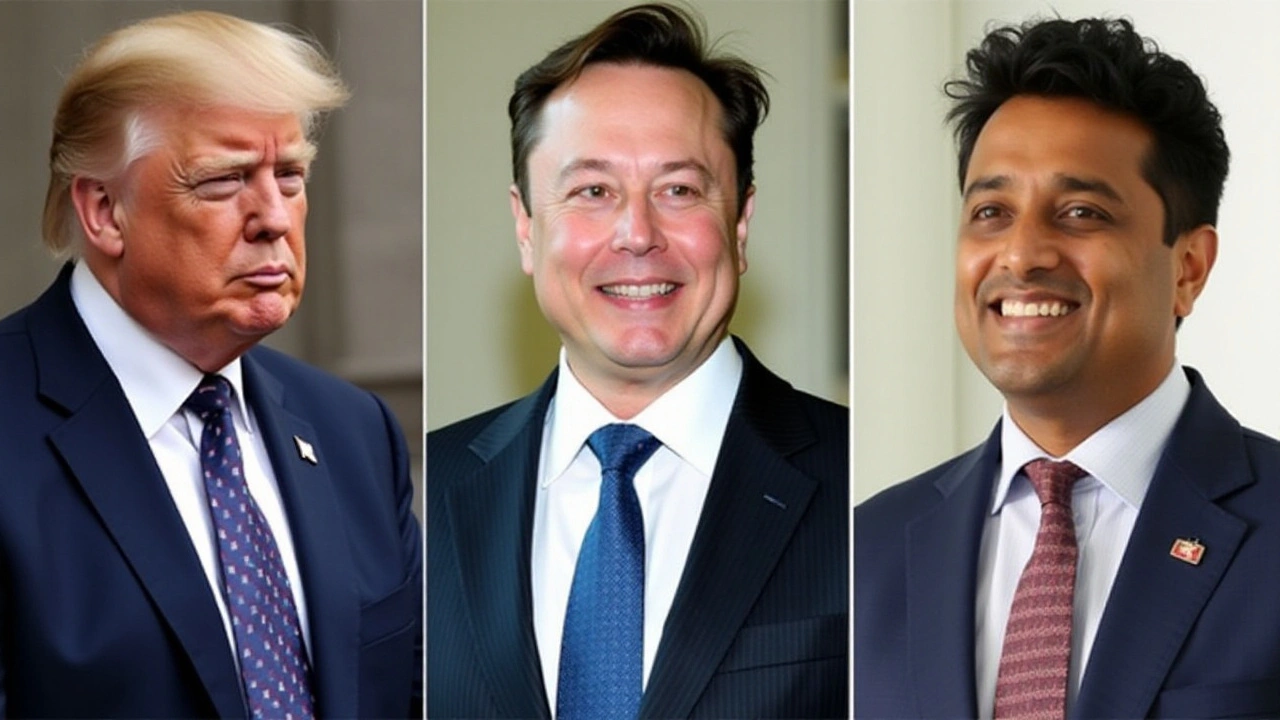Trump Nominates Elon Musk and Vivek Ramaswamy for Government Efficiency Initiative
 Nov, 14 2024
Nov, 14 2024
Trump's Vision for Government Efficiency
Former President Donald Trump, never one to shy away from taking on what he perceives as governmental inefficiency, has recently announced his intentions to create a new temporary agency known as the Department of Government Efficiency if he triumphs in the 2024 presidential election. This proposed department is envisioned as a key player in reshaping the landscape of American governance, focusing primarily on cutting down wasteful spending and ultimately streamlining federal bureaucracy. Trump’s decision to nominate two high-profile figures, Elon Musk and Vivek Ramaswamy, to lead this effort indicates the seriousness with which he views this initiative. Both men, recognized for their innovation and business acumen, are expected to bring their unique perspectives to what Trump’s campaign has billed as a non-partisan approach to improving operational efficiency within the government.
The Role of Musk and Ramaswamy
Elon Musk, the entrepreneurial brain behind SpaceX and Tesla, brings a wealth of experience from revolutionizing industries that range from transportation to space travel. His ventures are often touted as examples of how efficient, cost-effective strategies can push boundaries while achieving grand visions. Meanwhile, Vivek Ramaswamy, a businessman and former presidential candidate, is known for his critical viewpoints on government involvement in private enterprise and his advocacy for free markets. This pairing indicates a strategic choice by Trump to inject fresh, dynamic thinking into the intricate workings of government policies and expenditures. However, the real question remains: can these private sector giants pull off a transformation in the sluggish, resistant-to-change corridors of government?
The Strategies on the Table
The Department of Government Efficiency is proposed to operate with a clear mandate of identifying and eliminating unnecessary spending, while seeking out opportunities to rationalize the operations of federal agencies. This initiative's core task involves conducting an expansive two-year review of the federal structure to pinpoint areas ripe for restructuring or pruning. According to Trump’s campaign, this isn't just about finding monetary savings; it's about enhancing the very way the government functions. This move comes at a critical time when the national debt remains a pressing topic of concern for both policymakers and the public alike. For Trump, infamous for his no-nonsense approach, this department is a way to proactively tackle one of the government's most perennial challenges.
Challenges and Skepticism
Despite the boldness of this initiative, it hasn't arrived without its fair share of criticism. Questions have been raised regarding how feasible such an operation would be, especially given the entrenched nature of federal bureaucracy. Skeptics argue that past attempts to curtail government expenditure have often led to minimal results, overshadowed by the complexity and political influences deeply embedded within federal processes. Furthermore, concerns about political interference naturally erupt, as doubts about maintaining a strictly non-partisan stance seem optimistic at best in today’s hyper-political climate. The transparency and accountability factors will be top priorities to ensure the public perceives this effort as genuine and unbiased. There’s also the practical challenge: crafting recommendations that are not only viable but palatable to diverse political interests that frequently clash over the management of public resources.
Setting the Stage for 2024
This announcement comes as part of Trump's broader policy platform laid out for his potential return to presidency. Known for his unconventional tactics and willingness to challenge the status quo, Trump is orchestrating a platform that promises change in a direction he believes best aligns with fiscal responsibility and governmental effectiveness. As his campaign gains momentum, this plan will serve as a litmus test for voter sentiments about governmental efficacy and spending. The ongoing need for fiscal restraint ensures that this issue will resonate with a portion of the electorate concerned about spending and deficits.
Looking Forward
As the United States approaches another pivotal election year, the implications of Trump's proposal offer much food for thought. If enacted, this department could serve as a paradigm-shifting force in how government spending and efficiency are evaluated and implemented. However, only time will tell if this endeavor is a potent solution or merely another lofty ideal. The discourse surrounding Musk and Ramaswamy's potential roles is sure to incite extensive debate and analysis, both within Washington and beyond, as stakeholders across the board consider the ramifications of such a bold policy declaration.